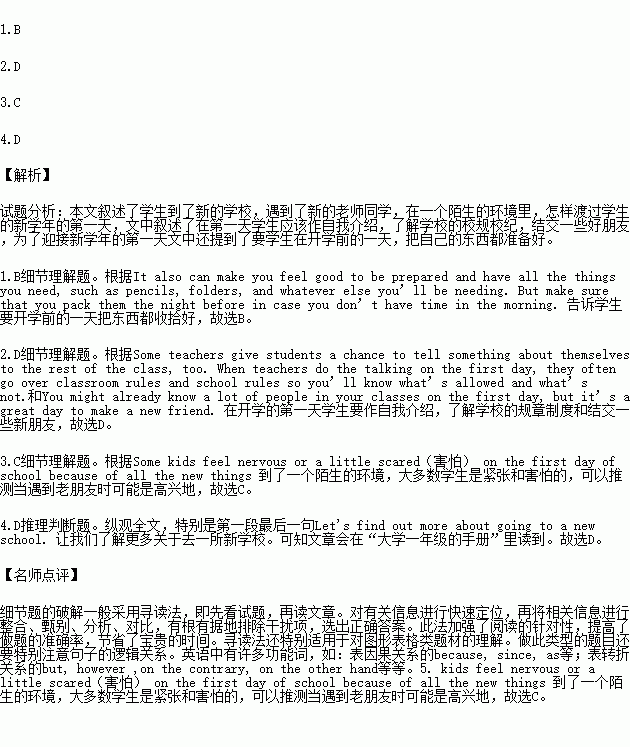题目内容
It's school time again! You're probably feeling excited and maybe a little sad that summer is over. Some kids feel nervous or a little scared on the first day of school because of all the new things: new teachers, new friends, and even a new school. Luckily, these “new” worries only stick around for a little while. Let's find out more about going to a new school.
Most teachers kick off the new school year by introducing themselves and talking about all the stuff you'll be doing that year. Some teachers give students a chance to tell something about themselves to the rest of the class, too. When teachers do the talking on the first day, they often go over classroom rules and school rules so you'll know what's allowed and what's not. Please pay close attention.
You might already know a lot of people in your classes on the first day, but, it's a great day to make a new friend, so try to say hello to kids you know and new ones that you don't. Make the first move and you'll be glad you did, and so will your new friend!
Seeing old friends can make the first day a good one. You can make the day special by wearing clothes that you really like. Maybe you got a great Tshirt on one of your vacations, or a pair of sneakers (运动鞋). It also can make you feel good to be prepared and have all the things you need, such as pencils, folders, and whatever else you'll be needing. But make sure that you pack them the night before in case you don't have time in the morning.
1.The last paragraph mainly tells us about ________.
A.what to know about a new school
B.how to prepare for a new school
C.what to do on your first day of school
D.how to spend your first day of school
2.According to the passage, you usually do everything on the first day of school except ________.
A.introducing yourself
B.learning about the school rules
C.making new friends
D.going over your new lessons
3.If you happen to see an old friend on the first day of school, from the passage we know that you will feel ________.
A.nervous B.unlucky
C.happy D.upset
4.Where can you read the passage?
A.In a newspaper. B.In a scientific report.
C.In a notice. D.In a freshman handbook.

